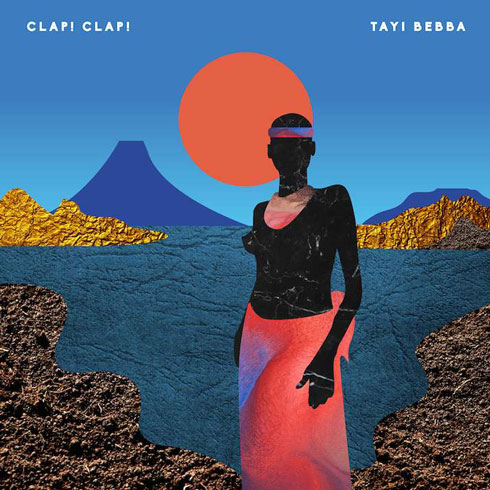Clap! Clap!
Tayi Bebba
Black Acre
Released Sept. 8 2014
Maybe it was the mysterious nature of the Italy-based producer behind Tayi Bebba, but the phrase ‘cultural appropriation’ is now probably the first thing dance aficionados associate with Clap! Clap!. That’s a shame. Let’s assume for a moment that the person is a white man; is this then an attempt to dress up someone else’s work – maybe that of a whole culture – as something original, and then profit from it, the way the likes of Pat Boone did by rerecording early R&B hits in a more ‘white’ style? I would argue it isn’t. For one thing, it’s clear that, although the samples of field recordings on Tayi Bebba pervade the album and give it its concept (an imaginary island), they’re arguably transformed into original work by the way they’re sampled and combined with synthesized elements to make a work that has merit in its own right. Of course, the work being interesting doesn’t absolve the creator of having swiped someone else’s ideas, but frankly, it helps. Nothing about Tayi Bebba feels tossed-off or exploitative; it’s a nuanced, well-constructed work. In a certain sense, I’d compare it to A Tribe Called Red; while ATCR obviously has a direct link with its native Canadian sample sources and Clap! Clap! may not, ATCR didn’t invent their culture from whole cloth either, they just brought vibrant new context and creativity to existing material. (I find it a little odd that dogmatic left-wing radicals are, in these cases, so hung up on the idea of inherited culture. They certainly don’t feel that way about inherited wealth.) While Clap! Clap! may not have come from the culture he or she is sampling, I don’t see any attempt to claim authority or authenticity in reference to the source material, so without knowing more, I’m willing to listen.
With that out of the way, boy do I dig this record. Clap! Clap!’s talent as an arranger and producer is unmistakeable; there’s nothing outwardly ‘ethnic’ about a song like “Conqueror (remorse/withdrawn),” yet it’s just as arresting and invigorating as the more obviously African-based “The Rainstick Fable” with its chants and kalimba melody plinking and plunking away over vivid manifestations of the low end theory. Read: bass. There’s no gimmick here, that I can see; just great, kinetic dance music that borrows liberally from garage, hip-hop and dancehall as well as its sample sources to create refreshingly original stuff. I love the half-time trunk-rattling rhythm of “Kuj Yato” and the almost Bhangra-like Jew’s harp groove of “Burbuka.” Oh hell, I love it all. If you’re a fan of Mo Kolours or Flying Lotus’ early stuff, your life will be vastly improved by this album.

Leave a Reply